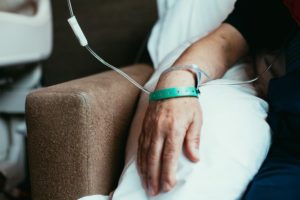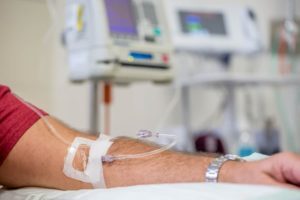
Personalized Medicine in Cancer Treatment
When you or a loved one is diagnosed with cancer, receiving care that is tailored to your individual needs is crucial to achieving the best
HIPAA Alert: Potential Data Breach Learn More
Questions on Oncology, Hematology and/or Infusion Clinical Services due to COVID-19 Crisis – CALL 833-698-1623
Important Information for Our Patients Regarding the Coronavirus.
RCCA Providing Area Cancer Patients with Access to Care During Coronavirus Outbreak
RCCA Offering Patients Virtual Visits During Coronavirus Pandemic
At RCCA, radiation therapy is one of the most common methods of treating cancer. It employs high-energy waves to target and kill cancer cells. While it can be very effective, it’s not right for every patient. Before you and your doctors make the decision to pursue radiation, take some time to understand the potential risks and benefits so that you can make the best decision for your health.
Radiation is commonly relied on to treat a variety of cancers, both as an individual treatment and in concert with chemotherapy, immunotherapy or surgical treatment. Everyone responds to radiation therapy differently, and there’s no way to predict how it will affect you. However, there are some common side effects, including:
Most of these side effects are short-term and go away after treatment. Many also apply only to the area that’s being treated. For example, if your chest is being treated, you will likely only have hair loss and skin changes on your chest, if at all. Some people may experience more severe side effects that cause the doctor to halt radiation or change the treatment schedule. Others may not experience any side effects at all.
There may also be additional side effects based on the location and type of cancer you have. If the brain is being treated, for example, patients might also experience headaches and blurred vision.
Because radiation therapy is a localized treatment, healthy cells are generally unaffected. However, it is possible for some healthy cells to be affected and for there to be long-term side effects. At RCCA, doctors plan treatment very carefully so as to minimize the risk of serious side effects as much as possible.
During treatment, side effects can limit a patient’s ability to do certain activities and cause them to rest more than usual. Some patients, however, feel well enough to continue working. No matter what, you’ll never have to go through treatment alone. Your RCCA care team can help you cope emotionally, spiritually and physically and help alleviate symptoms.
For more insight into how radiation therapy might affect you now and in the future, talk to your doctor. It’s important to discuss all potential risks and to weigh them against other treatment options that might be available to you, such as chemotherapy or clinical trials.
For more information or to schedule an appointment,
call 844-346-7222. You can also schedule an appointment by calling the RCCA location nearest you.

When you or a loved one is diagnosed with cancer, receiving care that is tailored to your individual needs is crucial to achieving the best

Infusion therapy is a treatment modality that administers medications intravenously. While most people associate infusions with cancer treatment, several different conditions can be managed and

Immunotherapy is an advanced type of cancer treatment. Instead of surgical procedures or radiation therapy, it works alongside the body’s natural immune system to fight

Regional Cancer Care Associates is one of fewer than 200 medical practices in the country selected to participate in the Oncology Care Model (OCM); a recent Medicare initiative aimed at improving care coordination and access to and quality of care for Medicare beneficiaries undergoing chemotherapy treatment.